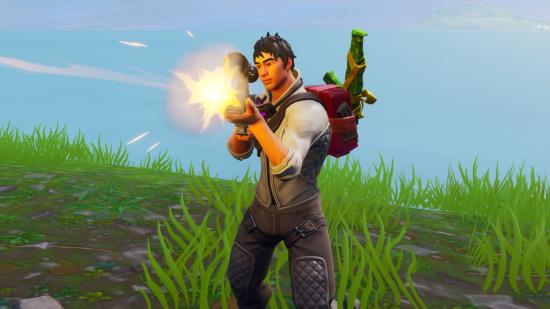A ruling by the U.S. Supreme Court has sent several lawsuits over Fortnite’s use of popular dance moves as in-game emotes back to the drawing board. Fresh Prince of Bel-Air star Alfonso Ribeiro, hip hop artist 2 Milly, and other creatives whose signature dances appear in Fortnite have temporarily dropped their suits against Epic in order to comply with the Supreme Court’s recent ruling.
In that ruling (Fourth Estate Pub. Benefit Corp. v. Wall-Street.com, LLC, which you can read in .pdf format here), that before someone can sue over copyright infringement, they first have to register their work with the U.S. Copyright Office. Importantly, their right to sue over infringement remains even if the Copyright Office decides not to register their copyright, but the Supreme Court ruling means that this process must be completed before they sue.
This means most of the parties suing Epic over the dances they created showing up in Fortnite have an administrative hoop to jump through before they can proceed with their lawsuits. Only Ribeiro, the creator of the ‘Carlton’ dance, has gotten a decision back from the Copyright Office. Last month, the office refused to register his claim as the owner of the dance move.
According to a story in The Hollywood Reporter, Ribeiro, 2 Milly, the ‘Orange Shirt Kid,’ and ‘The Backpack Kid’ are all represented by Pierce Bainbridge Beck Price & Hect, and all four have voluntarily dismissed their lawsuits in light of the Supreme Court’s recent decision.

However, the firm told THR that this was a ‘purely procedural’ move and that all four suits will be re-filed once the plaintiffs have all completed Copyright Office registration for their dance moves.
Objection: The most controversial games in PC history
It bears pointing out that the Supreme Court’s decision doesn’t really have implications for the merits of the creators’ claims against Epic for infringing on their rights – it only means they have to go through the Copyright Office, to exhaust all administrative remedies, before resorting to litigation.
However, suing over infringement is likely a much tougher prospect when you haven’t been able to secure an official copyright for your work.
